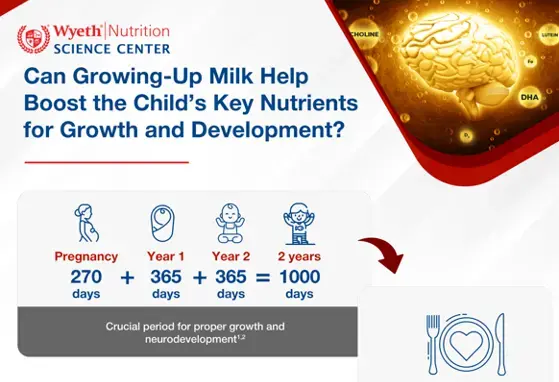[Hot Science] High sn-2 palmitate formula and neurodevelopmental outcomes in term infants
![[Hot Science] High sn-2 palmitate formula and neurodevelopmental outcomes in term infants](/sites/default/files/styles/header_image_article_mobile/public/2021-04/sn-2-palmitate.jpg.webp?itok=DT4R7-35)
The clinical significance of sn-2 palmitate fortification in infant milk formula has been well recognized particularly for its beneficial effects on gastrointestinal health. This recent study provides additional evidence to demonstrate the potential role of sn-2 palmitate in neurocognitive development early at the 24th week of life.
Study design
- Cluster-randomized, controlled, parallel-group trial conducted in China
Subject and Intervention
Control group (n = 59),
- Healthy, term formula-fed infants
- Fed standard cow’s milk formula with 10.3% palmitate acid in sn-2 position
Sn-2 group (n = 58),
- Healthy, term formula-fed infants
- Fed standard cow’s milk formula with 46.3% palmitate acid in sn-2 position
BF group (n = 57),
- Breastfed infants
- Fed exclusively with breast milk
Study duration
- Baseline (week 0) to week 24 of life
Results
Fecal bifidobacteria,
- At baseline, no significant difference in the relative abundance of fecal bifidobacteria was identified among groups;
- At week 16 (p = 0.001) and 24 (p = 0.028), control group had significantly lower relative abundance of fecal bifidobacteria vs. sn-2 group or breastfed;
- At week 16 and 24, no significance difference in the relative abundance of fecal bifidobacterial was identified between sn-2 group and BF group.
Neurodevelopmental scores,
- At week 16, sn-2 group had significantly higher adjusted median score for fine motor skills vs. control group (p = 0.021);
- At week 16, sn-2 group had no significant difference in adjusted median score for fine motor skills vs. BF group;
- At week 24, no significance differences in any domains were observed among groups;
Conclusion
- Elevating the level of sn-2 palmitate in milk formula improved infants’ fine motor skills development which is associated with an increased gut bifidobacteria level.
Link to publication:
https://pubmed.ncbi.nlm.nih.gov/33671493/
WYE-EM-066-APR-21
Reference
Wu W et al. Neurodevelopmental outcomes and gut bifidobacterial in term infants fed an infant formula containing high sn-2 palmitate: a cluster randomized clinical trial. Nutrients. 2021;13:693.
Other articles that you might be interested in:
[Hot Science] Infant feeding tolerance on formula supplemented with sn-2 palmitate and oligofructose
If you liked this post you may also like



Restoring Gut Health in C-Section Infants: Exploring the Role of Nutrition Modulators

Infographic - Can Growing-Up Milk Help Boost the Child's Key Nutrients for Growth and development?